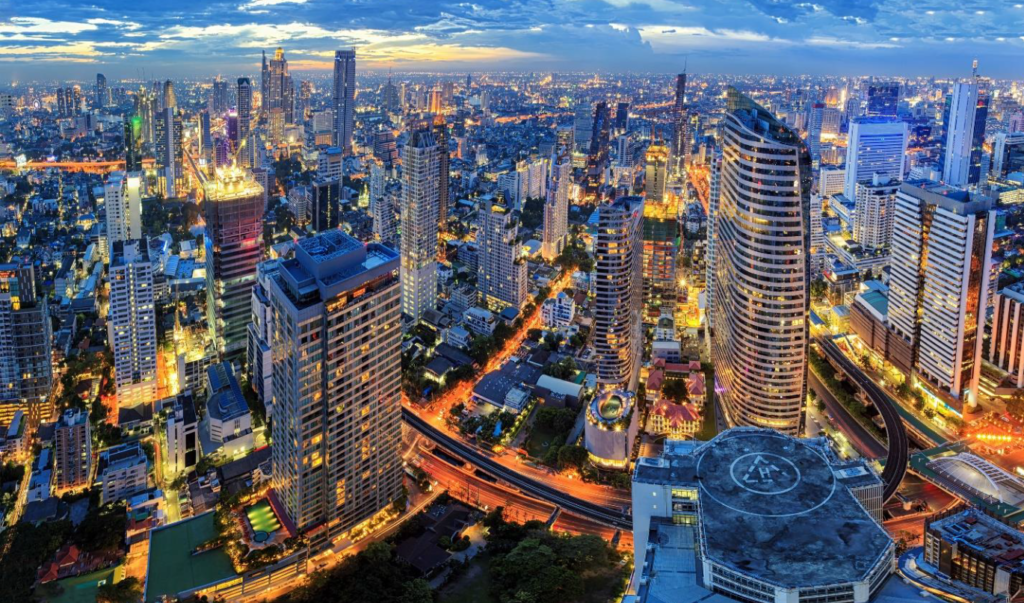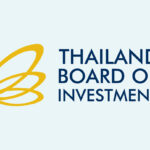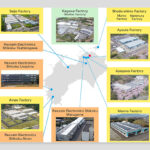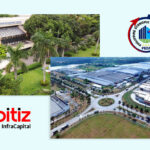ASIA ELECTRONICS INDUSTRYYOUR WINDOW TO SMART MANUFACTURING
Thailand’s New Strategy Aims More Manufacturers
Thailand has started implementing an even more ambitious five-year investment promotion strategy aimed at wooing more advanced technologies and upstream industries to bring about a new era of economic development. Accordingly, the move aims to bring about a new era of economic development, serving as tailwind the recent US$20 billion pledges from companies such as Foxconn, BYD Co., and Amazon Web Services.
Particularly, Thailand is offering much-improved incentives. These include up to 13 years corporate income tax exemption without a cap for investments in upstream industries. In addition, companies in advanced technology, such as wafer fabrication, biotech, nanotech, and advanced materials, can also avail of the new incentive scheme.

The strategy aims to ensure Thailand remains innovative, competitive, inclusive, and be-comes the showplace for digital innovation in Southeast Asia. At the same time, as a hub for business, trade and logistics. To support that goal, the BOI offers special privileges to key long-term investors, to those establishing regional headquarters and R&D operations, and to small and medium-sized enterprises and new economy startups. For certain categories, investors and their top foreign talent will have the opportunity to apply for 10-year Long-Term Resident visas.
“We will use the BOI and investment as a tool to drive Thailand to the new economy,” said BOI Secretary General Narit Therdsteerasukdi.
Regional EV Hub
In 2022, the new investment applications came from companies as diverse as Amazon Web Services, the cloud computing division of U.S. tech giant Amazon.com Inc, which has pledged to invest US$5 billion over several years. Next, BYD Co., China’s largest electric car maker which has committed to spending US$660 million to build its first manufacturing operations in ASEAN. Finally, Taiwan’s Foxconn Technology, will branch into EVs via a more than US$1 billion joint venture with Thai energy giant PTT.
While Thailand remains a major manufacturer of conventional vehicles, the EV investments by BYD and Foxconn is making the country a regional EV hub. Other EV investments include Great Wall Motor and SAIC Motor. In addition, Germany’s Mercedes-Benz chose Thailand as the first location in the region to build its fully-electric Mercedes-EQS model.
Adding to the positive investment mood, Akio Toyoda, head of Toyota Motor Corp., recently led the celebration in Bangkok the 60th anniversary of the company’s Thai unit. At the same time, Toyota also unveiled the first battery electric (BEV) version of its best-selling Hilux
Bats for ESG Compliance
The five priority sectors at the core of the strategy, including the critical Bio-Circular Green (BCG), a burgeoning sector of green, smart, renewable-focused foreign and home-grown industries. The other four are the electric vehicle supply chain, smart electronics manufacturing, the digital sector and the creative industries.
Among the foreign companies BOI Secretary General Narit impresses upon the need to conform to environmental, social and governance (ESG) concerns. “As the world focuses on ESG, investors need clean energy and we can provide it,” he says in the article. “Thailand has the answer.”
Thailand’s BOI has been conducting investment roadshows, namely in key FDI source countries. Particularly, Japan, where many firms see opportunities to invest in Thailand in BCG-related technologies such as hydrogen cell fuel development. Meanwhile, others have expressed interest in automation and robotics.




